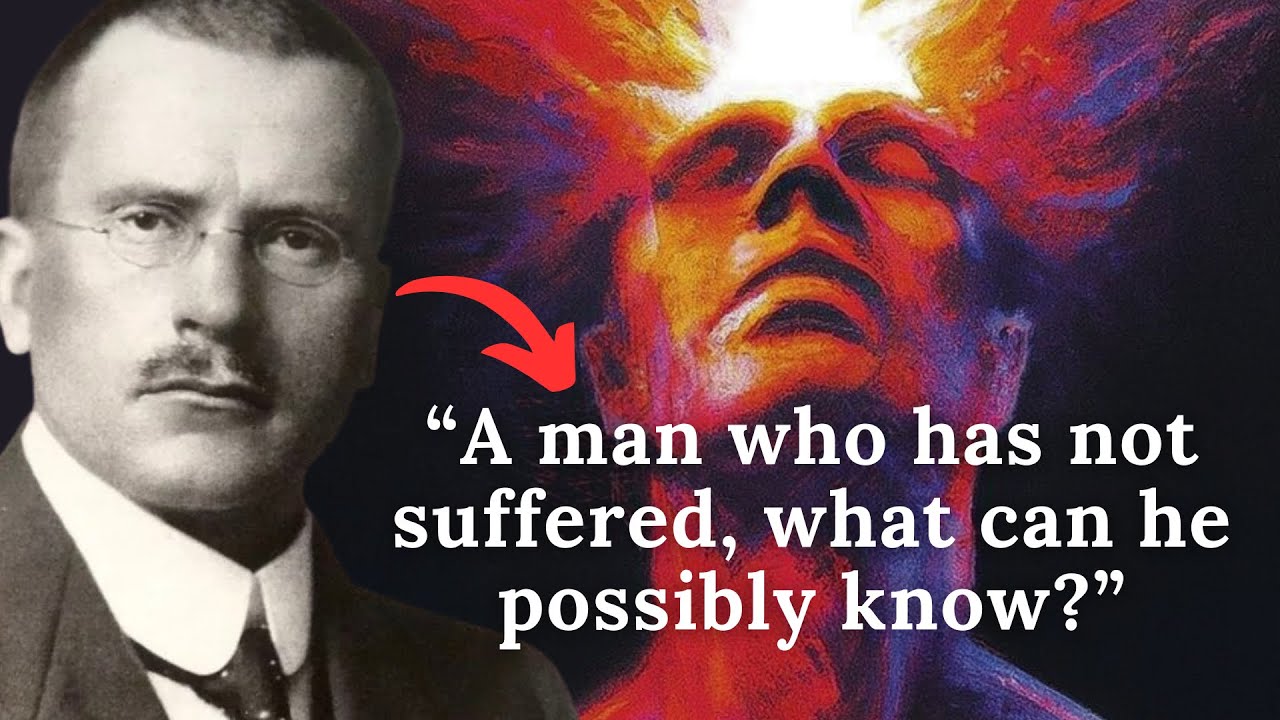The video discusses Carl Jung’s belief that suffering is essential for personal growth and true wisdom, arguing that avoiding discomfort leads to emptiness and neurosis. It emphasizes that embracing suffering can transform individuals and that meaning is created through conscious engagement with pain, ultimately viewing suffering as a gift rather than a curse.
The video explores Carl Jung’s profound understanding of suffering as a fundamental aspect of human existence and a foundation for true wisdom. Jung believed that many people avoid the discomfort of suffering, mistakenly viewing it as an obstacle to happiness. In contrast, he argued that suffering is not only unavoidable but essential for personal growth and understanding. He posed a challenging question: “What can a man who has not suffered possibly know?” This inquiry invites viewers to reflect on their own life experiences and the lessons learned through struggle rather than comfort.
Jung’s observations in psychotherapy revealed that many individuals suffer not from clinical disorders but from a sense of emptiness and meaninglessness in their lives. He identified this emptiness as stemming from a refusal to confront suffering. He noted that neurosis often arises as a substitute for legitimate suffering, suggesting that attempts to escape pain can lead to chronic suffering in the form of anxiety or addiction. Jung emphasized that embracing suffering can lead to profound psychological and spiritual transformation.
The video draws parallels between human suffering and religious symbolism, highlighting how figures like Buddha and Christ faced suffering as a path to enlightenment and resurrection. These narratives reflect a universal pattern in which transformation often requires a descent into hardship. Jung’s insights suggest that suffering should be approached with awareness and engagement, allowing individuals to learn from their pain and use it as a vehicle for self-discovery.
Practical examples illustrate how individuals can respond differently to suffering. One person may succumb to despair after losing a job, while another may view the experience as an opportunity for reflection and growth. Jung emphasized that suffering without meaning can be destructive, whereas suffering with purpose can lead to transformation. He argued that meaning is not simply discovered but created through the conscious engagement with suffering.
The video concludes by asserting that suffering should be seen as a gift rather than a curse. It encourages viewers to approach adversity with curiosity and a desire to learn, rather than fear. Jung’s perspective challenges the modern tendency to seek comfort and avoid pain, suggesting that true wisdom comes from enduring and transcending suffering. Ultimately, the video reinforces the idea that those who have not faced suffering cannot fully understand the depths of life and the lessons it offers.
